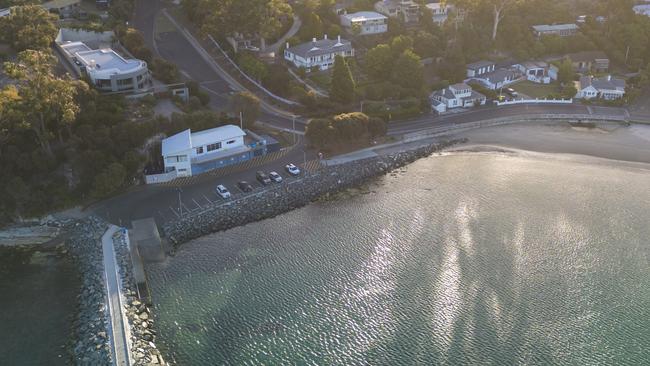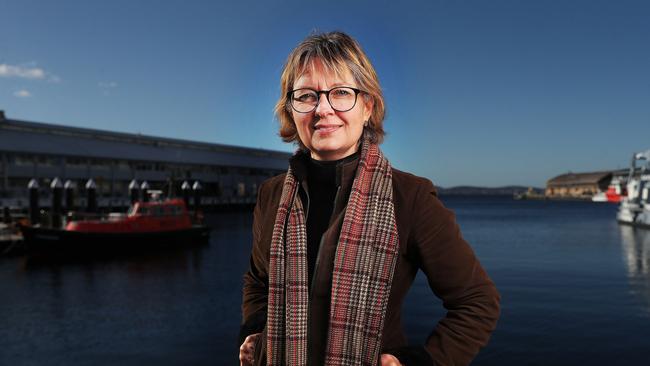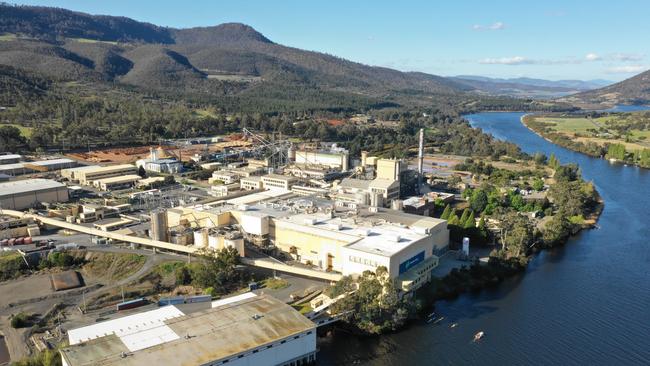Derwent Estuary report card reveals which beaches are polluted
The results are in and we can reveal the best and worst sites along the Derwent to swim, based on water quality. Here’s how beaches along the Derwent Estuary rated.

Tasmania
Don't miss out on the headlines from Tasmania. Followed categories will be added to My News.
The latest report card for the Derwent Estuary shows improvements to several swimming spots along the river, but the results were not all positive.
The Derwent Estuary Program monitors the health of the River Derwent year round, undertaking tests at sites at a number of key sites.
The 2023 report card, which was released this week, showed four beaches: Howrah Beach (east), Nutgrove Beach (east and west), and Taroona Beach, improved from ‘fair’ to ‘good’.
Blackmans Bay (south), Kingston Beach (north) received ‘poor’ ratings.
“Despite continued improvements, some deterioration in water quality within New Town Bay has been observed and together we are committed to understanding why this has occurred,” program CEO Ursula Taylor said.

“Further investigation and monitoring will continue to manage stormwater and sources of contamination, particularly at sites with degraded water quality.”
The report also provides and insight into industrial, sewage and stormwater discharge.
“An increase in nutrients discharged from sewage treatment plants to the estuary in 2023 has been driven by above average rainfall, compromised infrastructure and general increases from high density urban areas,” Ms Taylor said.
“An increase in nutrients has been observed in the middle and upper estuary indicating increased pressure from catchment inputs.”
There are two locations along the river of large industrial discharge: the Norske Skog paper mill and the Nyrstar Hobart Smelter at Lutana.

“Nyrstar Hobart has demonstrated a strong commitment to preventing contaminated groundwater reaching the estuary,” Ms Taylor said.
“The groundwater remediation systems at Nyrstar have extracted over 300 tonnes of zinc from groundwater in the past three years.”
The report also looks at heavy metals found in seafood.
Advice has not changed around the seafood found in the Derwent, which is that shellfish and bream collected from the estuary should not be consumed, and consumption of fish from the river should be limited to two meals per week.
For children and pregnant woman, that’s reduced to no more than once a week.
Where can you swim? Water ratings for every site along the Derwent Estuary
Beaches with ‘good’ water quality
• Windermere Bay Beach
• Nutgrove Beach (east)
• Nutgrove Beach (west)
• Little Sandy Bay (south)
• Little Sandy Bay (north)
• Taroona Beach
• Blackmans Bay (north)
• Bellerive Beach (east)
• Bellerive Beach (west)
• Howrah Beach (east)
• Little Howrah Beach
Bays with ‘good’ water quality
• Old Beach Jetty
• Elwick Bay Yacht Club
• Montagu Bay
• Mid-River Swim
• Brooke Street Pier
• Sullivans Cove
Beaches with ‘fair’ water quality
• Hinsby Beach
• Kingston Beach (mid)
• Kingston Beach (south)
• Blackmans Bay (mid)
• Howrah Beach (mid)
• Howrah Beach (west)
Bays with ‘fair’ water quality
• New Norfolk (The Esplanade)
• New Norfolk (Millbrook Rise Jetty)
• New Town Bay
• Prince of Wales Bay
• Regatta Pavilion
• Victoria Dock
• Marieville Esplanade
• Kangaroo Bay
Beaches with ‘poor’ water quality
• Kingston Beach (north)
• Blackmans Bay (south)
Bays with ‘poor’ water quality
• Geilston Bay
• Lindisfarne Bay
• Hobart Rivulet (mouth)
• Watermans Dock
• Browns River





